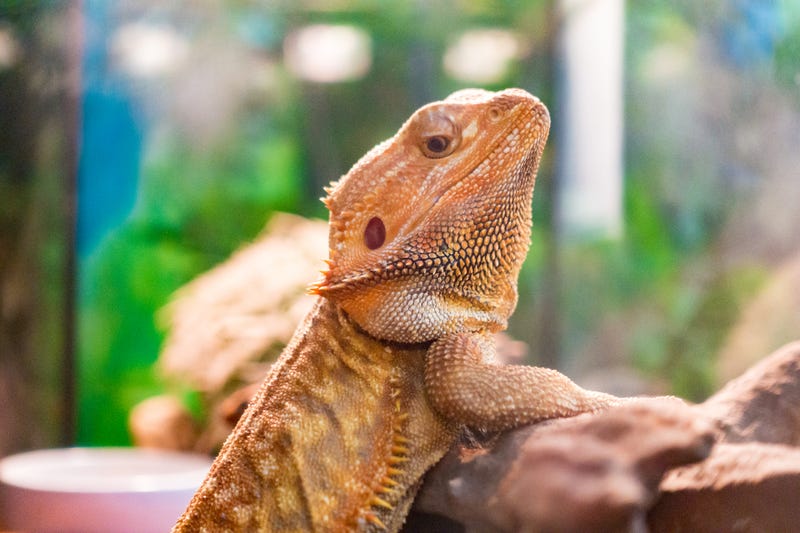
A Salmonella outbreak that has mainly impacted infants younger than 1 year old has been linked to bearded dragons, according to the U.S. Centers for Disease Control and Prevention.
So far, close to half of the 23 cases reported across 15 states have been babies younger than 1 year old. There have been eight recorded hospitalizations since the outbreak was first reported last April, but no deaths as of Tuesday.
Salmonella is bacteria that causes about 1.35 million infections, 26,500 hospitalizations, and 420 deaths in the U.S. annually. Signs of infection include diarrhea, fever, and stomach cramps within six hours to six days of infection and will clear up in four to seven days.
While most people recover from Salmonella infections without specific treatment some illnesses become so severe that they require hospitalization.
Bearded dragons, or Pogona vitticeps, are lizards that are around 13 to 14 inches long, including their tails, according to the University of Michigan Museum of Zoology. They are named after their expandable throat pouches, which have spikey scales. According to Reptile Magazine, they were the most popular pet reptile in the U.S.
last year.
“Bearded dragons can carry Salmonella germs in their droppings even if they look healthy and clean,” the CDC explained. “These germs can easily spread to their bodies and anything in the area where they live and roam.”
People can get sick from touching bearded dragons or anything that is in the reptile’s environment and then touching their mouths or food and swallowing the germs.
To avoid getting sick from a pet bearded dragon, the CDC recommends frequent hand washing when handling them and things in their environment. The Centers also dissuade bearded dragon owners from snuggling the reptiles.
People who have been in contact with the reptiles – especially children – should see a doctor if they develop: diarrhea and a fever higher than 102°F, diarrhea for more than 3 days that is not improving, bloody diarrhea, so much vomiting that they cannot keep liquids down and signs of dehydration.
Follow KNX News 97.1 FM
Twitter | Facebook | Instagram | TikTok



